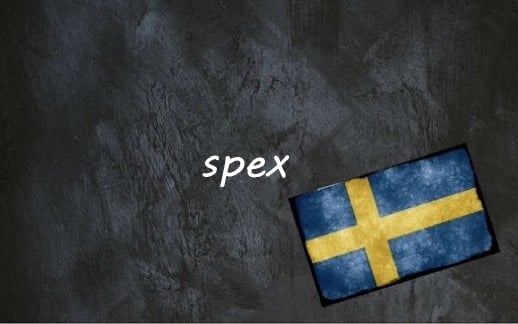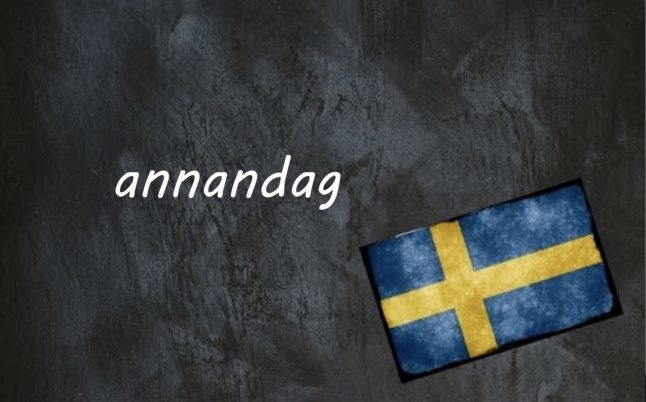Svenska akademiens ordlista, the word-list of the Swedish Academy, lists spex as ‘amateur performances, often by students, with various types of parodies; fun performance or joke.’
The word spex is derived from spektakel which is the same as the English ‘spectacle’, as in a ‘a public show or display, especially on a large scale.’ Yet there is a difference. Sometimes also known as studentspex, a spex is usually, though not always, tied to student-life.
The word itself, according to Svenska akademiens ordbok (‘The Dictionary of the Swedish Academy’), originated as a student slang word for the spectacles put up by Swedish students at certain universities. These student shows are now also increasingly a part of Finnish student tradition, where they are called speksi.
Spex are widespread in the student cities of Uppsala, Gothenburg, Lund, Umeå, Linköping, Örebro, Stockholm, and now increasingly at Finnish universities. Participants are usually students, but sometimes young academics as well.
The tradition originated sometime around 1850 in Uppsala, which is the home of one of Sweden’s most famous universities, known among other things for rejecting Michel Foucault’s doctoral thesis.
Manual widget for ML (class=”ml-manual-widget-container”)
The original spex were parodies of all the classical dramas in Latin and Classical Greek that the students had to watch at Uppsala university. Even today the spex is often an irreverent play on an actual play, with anachronistic references to contemporary personalities, including lots of wordplay.
In a spex the audience is encouraged to call actors back in after especially appreciated lines or scenes, to do a reprise. And, unlike in regular plays, actors often look directly at the audience rather than at the other actors.
The music used is often well known tunes with new humorous lyrics, again often with lots of wordplay, and the accompaniment can vary from a lonely piano to a full band or orchestra, to sometimes just being acappella.
Another characteristic of the spex is that it often has reverse gender casting, women playing men and men playing women.
If you feel like going to a spex, the best time to enjoy one by your local student body is in the springtime. Follow your local student body on social media for the latest updates.
Another use of the word spex is to describe when a person is acting a bit silly to elicit laughter. You can then say that someone is trying to spexa till det, (‘to ‘spex’ it up’).
Example sentences:
Kolla, kolla! Nu försöker Bettan spexa till det igen!
Look, look! Bettan is trying to spex it up again!
Ska du gå på spexet ikväll?
Are you going to the spex tonight?
Villa, Volvo, Vovve: The Local’s Word Guide to Swedish Life, written by The Local’s journalists, is now available to order. Head to lysforlag.com/vvv to read more about it. It is also possible to buy your copy from Amazon US, Amazon UK, Bokus or Adlibris.



 Please whitelist us to continue reading.
Please whitelist us to continue reading.
Member comments